
CPD Ref: C-107674
CPD Points: ![]()
CPD Type: Non-interactive
Closing Date: 30 September 2025Domains: Clinical practice, Professionalism
![]()
![]()
In the second part of this two-part course, our experts discuss what you need to consider before fitting a child with contact lenses. They also give helpful advice on how to educate children and their parents about contact lenses and discuss the legal aspects to bear in mind when fitting contact lenses to younger patients.
Topics: Contact lens compliance, Microbial keratitis, Communicating with children, Management of contact lens wear risks, Contact lens teach appointment, Legal considerations of fitting children with contact lenses.

CPD Ref: C-104804
CPD Points: ![]()
CPD Type: Non-interactive
Closing Date: 31 December 2025
Domains: Clinical practice, Communication
![]()
![]()
As part of Docet’s contact lens series, we have launched a new module on fitting presbyopic patients with contact lenses. Part one looks at the current practices and the opportunity for fitting presbyopes. It covers the ocular changes and challenges that need to be considered in the older patient and the range of options open to optometrists to correct presbyopia.
Topics: Presbyopia, Accommodation, Tear film, Ageing eye, Dry eye, Tears, Multifocal, Monovision, Stereopsis, Contrast, Presbyopia series.

CPD Ref: C-105123
CPD Points: ![]()
CPD Type: Non-interactive
Closing Date: 31 December 2025
Domains: Clinical practice, Communication
![]()
![]()
Part two of Contact Lenses: Presbyopia looks at the factors affecting the choice of contact lenses for fitting presbyopes including patient history, lifestyle needs and eye health as well as the range of multifocal lenses available, the lens materials and their properties.
Topics: Presbyopia, Tear film, DED, Dry eye, Tears, Multifocal, Silicon hydrogel, Soft, RGP, Hybrid, Wettability, DK, Oxygen, Modulus, Materials, Presbyopia series.
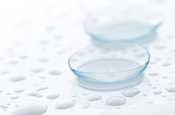
CPD Ref: C-105434
CPD Points: ![]()
CPD Type: ![]()
Domains: Clinical practice, Communication
![]()
![]()
Part three of the new contact lenses module on presbyopia continues to look at the factors affecting the choice of contact lenses for fitting presbyopes. It discusses the range of multifocal lenses available, the different lens designs and their optical features.
Topics: Presbyopia, Tear film, Tears, Multifocal, Soft, RGP, Hybrid, Aberrations, Pupil, EDOF, Centre near, Centre distance, Presbyopia series.

CPD Ref: C-105549
CPD Points: ![]()
CPD Type: Non-interactive
Closing Date: 31 December 2025
Domains: Clinical practice, Communication
![]()
![]()
Part four of Contact Lenses: Presbyopia looks at multifocal contact lens fitting and the steps when choosing and fitting presbyopes with contact lenses. It covers the six fitting steps of soft multifocal lenses, fitting soft toric and RGP multifocal lenses, monovision and aftercare. Three experts discuss how to understand the factors affecting successful contact lens wear in presbyopes and the importance of effective communication.
Topics: Presbyopia, Multifocal, Silicon hydrogel, Hydrogel, Toric, RGP, Monovision, Aftercare, Ocular dominance, Astigmatism, Presbyopia series.

CPD Ref: C-106500
CPD Points: ![]()
CPD Type: Non-interactive
Closing Date: 31 December 2025
Domains: Clinical practice, Communication
![]()
![]()
This is the first case study on fitting presbyopic patients with contact lenses, part of Docet’s Contact Lenses: Presbyopia module. This case looks at the fitting of a typical presbyope new to contact lenses. The patient’s lifestyle is considered as you work through the steps of successfully fitting and modifying two soft multifocal contact lens designs. This course will help an optometrist build their confidence fitting common multifocal lenses and discuss how to effectively communicate with the patient.
Topics: Presbyopia, Tear film, Dry eye, Tears, Multifocal, Monovision, Contact lenses, Soft, Aftercare, Presbyopia series.

CPD Ref: C-106502
CPD Points: ![]()
CPD Type: Non-interactive
Closing Date: 31 December 2025
Domains: Clinical practice, Communication
![]()
![]()
This is the second case study on fitting presbyopic patients with contact lenses, part of Docet’s Contact Lenses: Presbyopia module. This case looks at the re-fitting of a typical presbyopic contact lens wearer with multifocal lenses. The patient’s lifestyle is considered as the case works through the steps of successfully fitting and modifying two soft multifocal contact lens designs. This course will help an optometrist build their confidence fitting common multifocal lenses and discuss how to effectively communicate with the patient.
Topics: Presbyopia, Tear film, Dry eye, Tears, Multifocal, Monovision, Contact lenses, Soft, Aftercare, Presbyopia series.

CPD Ref: C-107122
CPD Points: ![]()
CPD Type: Non-interactive
Closing Date: 31 December 2025
Domains: Clinical practice, Communication
![]()
![]()
This is the third case study on fitting presbyopic patients with contact lenses, part of Docet’s Contact Lenses: Presbyopia module. This case looks at fitting a challenging presbyopic contact lens wearer with RGP toric multifocal lenses. The patient’s lifestyle is considered as the case works through the steps of successfully fitting and modifying the RGP lenses. This course will help an optometrist build their confidence around fitting a more complex presbyopic patient.
Topics: Presbyopia, Tear film, Dry eye, Tears, Multifocal, Monovision, Contact lenses, RGP, Toric, Aftercare, Presbyopia series.

CPD Ref: C-110444
CPD Points: ![]()
CPD Type: Non-interactive
Closing Date: 31 December 2025
Domains: Clinical Practice, Communication
![]()
![]()
In this recorded lecture, Dr Rakhee Shah presents the latest research on dementia and its implications for optometry. Mr Simon Raw provides clinical insights on tailoring eye examinations to meet the needs of patients with dementia, along with strategies to ensure they feel safe and comfortable.
Topics: Mental Capacity Act 2005, Falls, Visual assessment and examination, Referral, Communication, History and symptoms, Dispensing, Dementia.
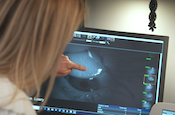
CPD Ref: C-101847
CPD Points: ![]()
CPD Type: Non-interactive
Closing Date: 31 December 2025
Domains: Clinical practice, Communication
![]()
![]()
The first part of Dry Eye Disease: The Complete Picture looks at the findings from the TFOS DEWS II report and the pathophysiology, epidemiology and risk factors for DED.
Topics: DED, Ocular surface disease, TFOS DEWS II, Dry eye, Tears, Homeostasis, Osmolarity, Cornea, Evaporative, Aqueous deficient, MGD.
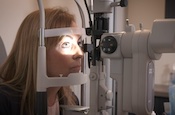
CPD Ref: C-101848
CPD Points: ![]()
CPD Type: Non-interactive
Closing Date: 31 December 2025
Domains: Clinical practice, Communication
![]()
![]()
The second part of Dry Eye Disease: The Complete Picture covers assessment and diagnosis as recommended in the TFOS DEWS ll report, including triaging questions and diagnostic tests and techniques.
Topics: DED, Ocular surface disease, TFOS DEWS II, Dry eye, Tears, Homeostasis, Osmolarity, Cornea, BUT, Fluorescein staining, Meibomian glands, MGD, Blepharitis, Demodex, Questionnaires, Lids, Aqueous deficient, Evaporative.
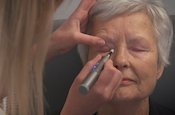
CPD Ref: C-101905
CPD Points: ![]()
CPD Type: Non-interactive
Closing Date: 31 December 2025
Domains: Clinical practice, Communication
![]()
![]()
The third part of Dry Eye Disease: The Complete Picture covers the treatment of DED as recommended in the TFOS DEWS ll report. It includes lubricants, lid treatments, environmental and dietary modifications and in-practice treatments.
Topics: Ocular surface disease, TFOS DEWS II, Dry eye, Tears, Homeostasis, Osmolarity, Meibomian glands, MGD, Blepharitis, Demodex, Lids, Aqueous deficient, Evaporative, Tea tree oil, Diet, Warm compress, IPL.
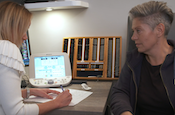
CPD Ref: C-101940
CPD Points: ![]()
CPD Type: Non-interactive
Closing Date: 31 December 2025
Domains: Clinical practice, Specialty CPD (IP)
![]()
![]()
The fourth and final part of Dry Eye Disease: The Complete Picture features the second unit on treatment of DED as recommended in the DEWSll report. It covers surgical interventions, patient adherence and the use of prescription drugs to manage DED, including those available to IP optometrists.
Topics: Ocular surface disease, TFOS DEWS II, Dry eye, Tears, Homeostasis, Osmolarity, Meibomian glands, MGD, Blepharitis, Lids, Drugs, Antibiotics, Punctal plugs, Adherence, COM-B.
 CPD Ref: C-100457
CPD Ref: C-100457CPD Points: ![]()
CPD Type: Non-interactive
Closing Date: 30 September 2025
Domains: Communication, Professionalism
![]()
![]()
The first of three programmes on examining patients with learning disabilities, which looks at the terminology around learning disabilities and provides information on different types, such as cerebral palsy, Down’s syndrome and the autism spectrum. The programme discusses causes, prevalence and how patients and their vision can be affected.
Topics: Learning disabilities, Genetics, Down’s syndrome, Autism, Cerebral palsy, Asperger syndrome, Communication, Visual impairment, Williams syndrome, Fragile X syndrome, Chromosome, Congenital, Amblyopia, Refractive error, Strabismus, Accommodation, Cataracts, Binocular vision.
CPD Ref: C-100458
CPD Points: ![]()
CPD Type: Non-interactive
Closing Date: 30 September 2025
Domains: Clinical practice, Communication
![]()
![]()
The second of three programmes, where experts discuss different techniques to help overcome the challenges when examining patients with learning disabilities, using different approaches and clinical tests that may be appropriate for this group of patients.
Topics: Learning disabilities, Retinoscopy, Charts, Ophthalmoscopy, Communication, Visual assessment, Refraction, Visual fields, Binocular vision, Autism, Down’s syndrome, Cerebral palsy, Vulnerable children, Vulnerable adults, School.
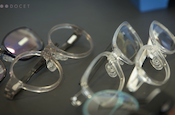
CPD Ref: C-100459
CPD Points: ![]()
Closing Date: 30 September 2025
Domains: Communication, Professionalism
![]()
![]()
The third and final part of this course covers the time 'After the appointment', including dispensing and aftercare, and looks at legal issues surrounding capacity, consent, confidentiality, GOS requirements and safeguarding with two patient case studies.
Topics: Learning disabilities, Communication, Autism, Down’s syndrome, Vulnerable adults, Vulnerable children, Capacity, Consent, GOS, Legal, Confidentiality, Safeguarding, Referral, Dispensing, Frames.

CPD Ref: C-101644
CPD Points: ![]()
CPD Type: Non-interactive
Closing Date: 31 December 2025
Domains: Clinical practice, Communication
![]()
![]()
The first part of the glaucoma series provides an updated overview of glaucoma definitions and prevalence, and explores the classification of its various types. It also covers the signs, symptoms and risk factors to support more accurate differential diagnosis and timely referral.
Topics: Glaucoma, NICE, SIGN, POAG, COAG, CAG, Congenital, Ocular hypertension, Prevalence, Secondary.
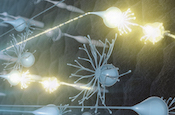
CPD Ref: C-101645
CPD Points: ![]()
CPD Type: Non-interactive
Closing Date: 31 December 2025
Domains: Clinical practice, Communication
![]()
![]()
The second part of the glaucoma series reviews normal eye anatomy and the pathophysiological changes involved in the development of glaucoma. It also explores current theories on the causes of glaucoma and examines the risk factors associated with its different types.
Topics: Glaucoma, NICE, SIGN, POAG, COAG, CAG, Congenital, Ocular hypertension, Prevalence, Risk, Corneal thickness, IOP.
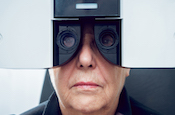
CPD Ref: C-101646
CPD Points: ![]()
CPD Type: Non-interactive
Closing Date: 31 December 2025
Domains: Clinical practice, Professionalism
![]()
![]()
The third part of the glaucoma series focuses on evaluating the anterior segment and angle to recognise key signs of glaucoma and identify major risk factors.
Topics: Glaucoma, NICE, SIGN, POAG, COAG, CAG, Van Herick, Smith’s method, Gonioscopy, OCT, Referral, PDS, PXF.
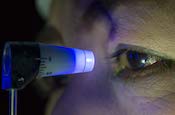
CPD Ref: C-101729
CPD Points: ![]()
CPD Type: Non-interactive
Closing Date: 31 December 2025
Domains: Clinical practice, Professionalism
![]()
![]()
The fourth part of the glaucoma series focuses on measuring intraocular pressure (IOP) with both contact and non-contact tonometers, reviewing normal results and outlining referral criteria.
Topics: Glaucoma, NICE, SIGN, POAG, COAG, CAG, Intraocular pressure, Referral , IOP, tonometer, GAT, Perkins, Ocular hypertension, CCT, Corneal thickness.